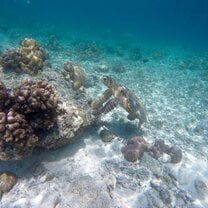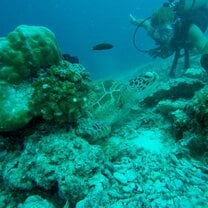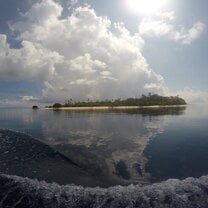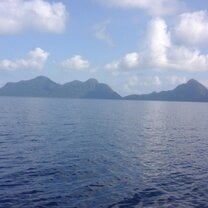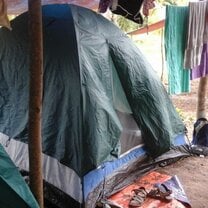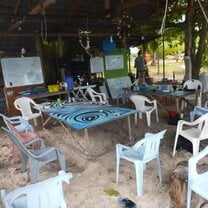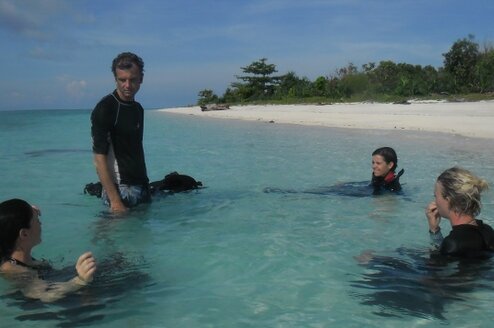My time at Pom Pom and with TRACC was so free, so happy, and so expansive for my knowledge and my mind. There was the freedom to dive as much or as little as I wanted, to grab a tank at 5am or 10 pm, to be involved in a number of awesome conservation projects and create my own. My knowledge expanded with every dive, even diving the same site, the same house reef everyday, I would seeing new creatures, or noticing a new coral, or a new behavior. And everyday every question or new observation or little problem was met with such enthusiasm by the Pom Pom community – everyone was talking and thinking and experiencing and loving the ocean all day everyday, making learning something new everyday come so naturally. The community and the people were also awesome – everyone helped each other out and shared their knowledge about the diving and the life and the conservation project. TRACC and Pom Pom Island has so much to offer, and if you get really involved it can give you so much!
A few recommendations… bring your own mask, fins, booties, wetsuit/rashgaurd/whatever you wear to dive in and snorkel – it’s a conservation organization and although there is spare BCD’s and Reg’s the smaller things are harder to come by.
Be prepared for simple living and ready to adapt to jungle camp life and island time – I loved my tent and all the joys that come with living freely and simply on the island, but it means insects, and slightly salty showers, lack of/faulty electricity and sand everywhere.
If you are going for your Divemaster (like I did) it is not a totally traditional dive school in that there are not a lot of other students coming through. This means a lot of the teaching assistance exercises are simulated with other Divermasters. But for me (who is making marine conservation my career) that was far outweighed by the knowledge I gained about the ocean life and ocean processes, the conservation projects and techniques, and the many experienced Divemaster's that shared so much knowledge, and simply the total freedom of diving so so much, and practicing Divemaster skills in other ways such as leading conservation dives and instructing new volunteers on how to do some of the conservation work underwater.
And most importantly – get involved and ask questions! If there is something you really want to know or do just ask someone or engineer a project and start it! There is plenty to be gained if you express the desire to accomplish something!



















